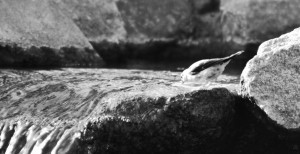
The Gustavus community has used the Arboretum throughout the years as a learning space, a place to work out, a place to play and a place to think and be still.
“It is a healthy place for students to be, and it can be a positive form of release from stress. It is really great that we have the [Arboretum] because it is this place of conservation. It’s really nice to just see something that is not developed entirely,” Junior Environmental Studies Major Katie Winkelman said.
Today the Gustavus and St. Peter communities have an opportunity to give back to the Arboretum and spend an afternoon outdoors because it is Arboretum Volunteer Day. Start your weekend off right with an invigorating time spent out of doors, serving the community with great people. Anyone is welcome to help with the removal of non-native Siberian Elms, weeding, pruning and trash removal. The event will begin at 2:00 p.m. and end at 5:00 p.m. on Friday, Sept. 25. Volunteers can meet outside of the Lind Interpretive Center before the event.
Bob Dunlap graduated from Gustavus in 2008 with an environmental studies and English double major and a passion for nature. He is the Arboretum naturalist and Nobel Hall greenhouse manager who is helping to coordinate this event. Dunlap’s passion for nature began at the early age of five, when his father gave him a bird-watching guide book. His interest in nature continued throughout his high school education and led him to his environmental studies major.
Each year the Interpretive Center tries to hold the Arboretum Volunteer Day at least once in the fall and the spring. The goal of this event is to have volunteers help remove invasive species that are an ecological threat to other plant species and to help with general weeding, pruning and cleanup.
“The deciduous woods part of the [Arboretum] is where the main focus of the project is because the non-native Siberian Elm tree is affecting the natural landscape, and if we don’t move them out now, it is going to spread to the point where we can’t do anything about it,” Dunlap said.
Dunlap explained that the Siberian Elm tree is a threat to the native species in the Arboretum because plant species that are not native to the Minnesota woods lack natural predators that would normally control a native species growth. A natural predator could be a type of insect or a disease that affects the plant.
In the case of the Siberian Elm tree, there is not a natural cycle to check the growth and spread of the tree. The area of the Arboretum that the volunteers are going to primarily work on is the edge of deciduous woods that reaches to the road. This area is especially at risk for the growth of the Siberian Elm because the woods are close to the road, which becomes pretty disturbed and can spread the seeds easily.
Volunteers will be given gloves, clippers and herbicide spray called tordon that is applied to the twig to kill invasive species.
“We can think globally and act locally by taking out invasive species because it is taking over other plants, and if everyone helps out we can make a difference,” Winkelman said.
“I volunteered last year, and it was really relaxed and I worked with a fun group of people,” Junior English and Philosophy Major Susan Kranz said.
The Arboretum is a great resource that involves the St. Peter community in other events besides the Volunteer Arboretum Day. Dunlap works with events like the Lineaus Symposium, community continuing education classes and giving guided tours of the Arboretum.
Once a month a continuing education class is taught in the Interpretive Center and topics have included nature and art. A lot of the St. Peter schools bring their students on a field trip to the Arboretum with a guided tour from Dunlap, who strongly encourages students to start experiencing nature at a young age.
The Arboretum is a great place for people to enjoy being outside and observe nature.
“Most students know there is an [Arboretum], and the ones that don’t will eventually see it is obviously a beautiful place to be. People jog, bike, play Frisbee. It is a unique part of Gustavus and I feel like students would like to give back,” Dunlap said.
Take time out of your day to relax and enjoy the beauty of the Arboretum, and stop on by the Interpretative Center to volunteer.
“I think that nature has a good effect on people, for some people it is more of a spiritual thing. I do find God in nature, and it helps me to clear my mind and bring me back in perspective that it’s not all about me, I am a small part,” Dunlap said.
“It is really important that people get more involved in conservation because the world just needs that right now,“ Winkelman said.
You can learn more about the Arboretum and the events that it hosts at gustavus.edu/arboretum.